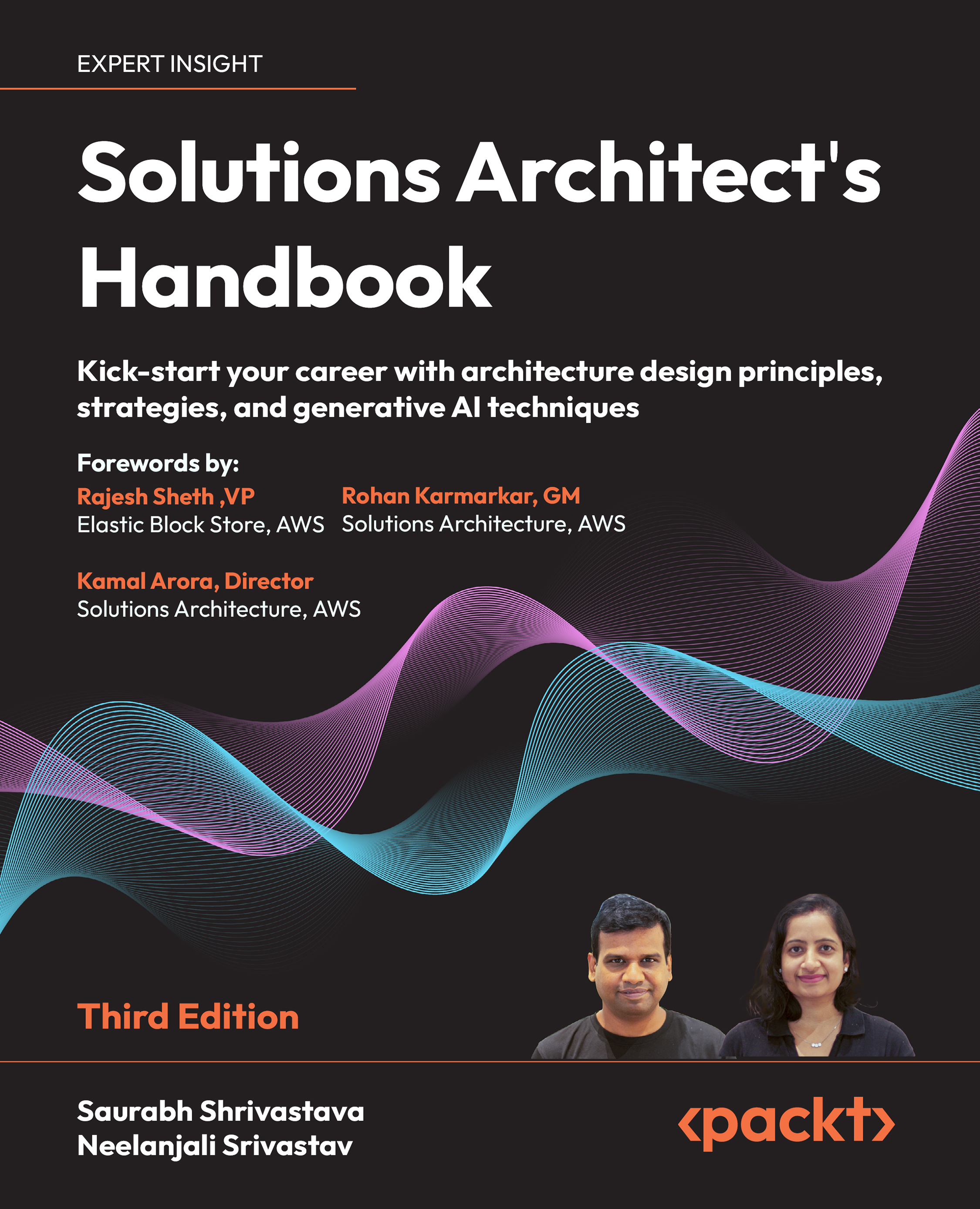Career path and skill development for solutions architects
The career path of a solutions architect can vary depending on the organization, industry, and individual aspirations. Here, we look at a general outline of the career path and skills development for solutions architects.
Career path
The career path of a solutions architect typically involves a series of progressive roles, starting from an educational foundation:
- Educational foundation: A bachelor’s degree in computer science, software engineering, or a related field is typically required to start a career as a solutions architect. Building a strong foundation in software development, system design, and IT concepts is essential.
- Professional experience: Solutions architects usually begin their careers as software developers, systems analysts, or technical consultants. Gaining hands-on experience in designing and implementing software solutions helps develop a deep understanding of practical application development and IT infrastructure.
- Solution design and architecture: As professionals progress in their careers, they transition into solution design and architecture roles. They work closely with stakeholders, analyze business requirements, and design scalable, reliable, and cost-effective solutions. Developing expertise in solution architecture frameworks and methodologies, such as The Open Group Architecture Framework (TOGAF) or the Zachman Framework, is beneficial.
Skill development
To enhance their career prospects, solutions architects should focus on developing skills in the following areas:
- Technical expertise: Solutions architects need a broad range of technical skills across different domains, such as application development, database management, networking, cloud computing, and security. They should continuously enhance their technical knowledge to stay updated on the latest technologies and industry trends.
- Communication and collaboration: Effective communication and collaboration skills are crucial for solutions architects. They must be able to translate technical concepts into understandable terms for non-technical stakeholders, facilitate discussions, and build consensus. Developing strong interpersonal and leadership skills is essential to effectively work with cross-functional teams.
- Business acumen: Solutions architects need to align technology solutions with business objectives. Developing business acumen helps them understand organizational strategies, industry dynamics, and customer needs. They should be able to analyze the impact of technology decisions on the overall business and make recommendations accordingly.
- Leadership and management: As solutions architects progress in their careers, they may take on leadership and management roles, overseeing teams of architects or managing solution delivery projects. Developing skills in project management, team leadership, and strategic planning enhances their ability to drive successful outcomes.
- Continuous learning: The field of technology is constantly evolving, and solutions architects need to be proactive in their learning journey. Staying updated on emerging technologies, industry best practices, and new architectural patterns is essential. Pursuing certifications and attending industry conferences and workshops can help in continuous professional development.
In today’s digital landscape, cloud computing has become integral to solution architecture. Cloud platforms offer scalability, flexibility, and cost efficiency, enabling rapid deployment and scaling of applications. They also provide access to advanced technologies like AI, big data analytics, and IoT, which are integral to digital transformation strategies. Therefore, proficiency in cloud solutions is essential for solutions architects to design effective, future-proof, and competitive technology solutions.
Here are some key points regarding cloud knowledge and certifications for solutions architects:
- Cloud platforms: Solutions architects should be familiar with major cloud platforms such as Amazon Web Services (AWS), Microsoft Azure, and Google Cloud Platform (GCP). They should understand the core services, architectural patterns, scalability options, and security features offered by these platforms.
- Cloud architecture: Solutions architects need to be proficient in designing cloud-based architectures that leverage the capabilities of cloud platforms effectively. This includes designing highly available and scalable solutions, implementing fault-tolerant systems, and optimizing cost and performance in the cloud environment.
- Cloud security: Security is a critical aspect of cloud computing. Solutions architects should have knowledge of cloud security best practices, encryption mechanisms, identity and access management, and compliance standards specific to the cloud environment. Understanding how to design and implement secure cloud architectures is essential.
- Cloud storage and databases: Solutions architects should have a good understanding of cloud storage options such as object storage, block storage, and file storage, and how to choose the appropriate storage solution based on specific requirements. Additionally, knowledge of cloud-based database services like Amazon RDS, Azure SQL Database, and Google Cloud Spanner is beneficial.
- Cloud certifications: Cloud certifications validate an individual’s expertise in cloud technologies and provide credibility in the industry. Popular cloud certifications for solutions architects include AWS Certified Solutions Architect, Microsoft Certified: Azure Solutions Architect Expert, and Google Cloud Certified – Professional Cloud Architect. These certifications demonstrate proficiency in designing and implementing cloud-based solutions.
Having cloud knowledge and certifications not only enhances the skill set of solutions architects but also demonstrates their ability to design and implement scalable, reliable, and secure cloud-based solutions. It boosts their professional credibility and increases their marketability in an increasingly cloud-centric industry. You can learn more about developing a career as an AWS-focused cloud solutions architect by referring to the book AWS for Solutions Architects (https://www.amazon.com/gp/product/180323895X/).
































































